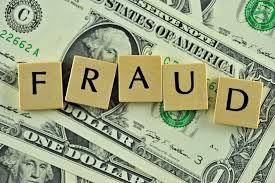SHOW ME THE MONEY – The Cost of Fraudulent Transfers

Should I accept a payment or check from someone other than the individual or entity who owes the money?
Picture this scenario, it has likely happened to most of us. Someone owes you money for some reason, be it rent, paying a bill, paying back a note or any number of other reasons. When you get the payment, however, the person or company writing the check is unfamiliar to you. Someone else or another company, for whatever reason, is paying and you have no idea why. Most people don’t really care where the money comes from, you are just getting paid, that is what is important. In reality, however, under Florida law you may be subjecting yourself to an unwanted lawsuit by accepting these funds.
The Florida Uniform Fraudulent Transfers Statute make you potentially liable to creditors of a corporation or individual from whom you accept payment for amounts due to you from another person. For example, a contractor does work on a home owned by the president of a company, and then the company pays the contractor for this work. In this case, the contractor could be forced to turn this money over to creditors of the company if the company is having financial troubles at the time. In other words, the contractor could at some point, even up to four years later, be forced to pay back this money to the Company and its creditors.
In the example above, if the purpose of the payment was to hinder, delay, or defraud a creditor or if the Company didn’t get some type of value for the payment to you and the Company is on its last leg financially, the transfer could be fraudulent. This law applies regardless of whether you knew about the financial condition of the Company or not. If a creditor of the Company finds out about this payment to the Contractor, they might have to pay the money back or at the very least defend an expensive lawsuit.
The best course of action is not to accept payments on money due to you from anyone except the person who owes it to you. Checks from those who are not your client or who don’t owe the money should cause you to raise a red flag. If it happens all the time, you need to ensure you ask why these payments are coming from a different person or company. Due diligence in such a case will save you grief and an expensive attorney’s fee bill in the long run.

